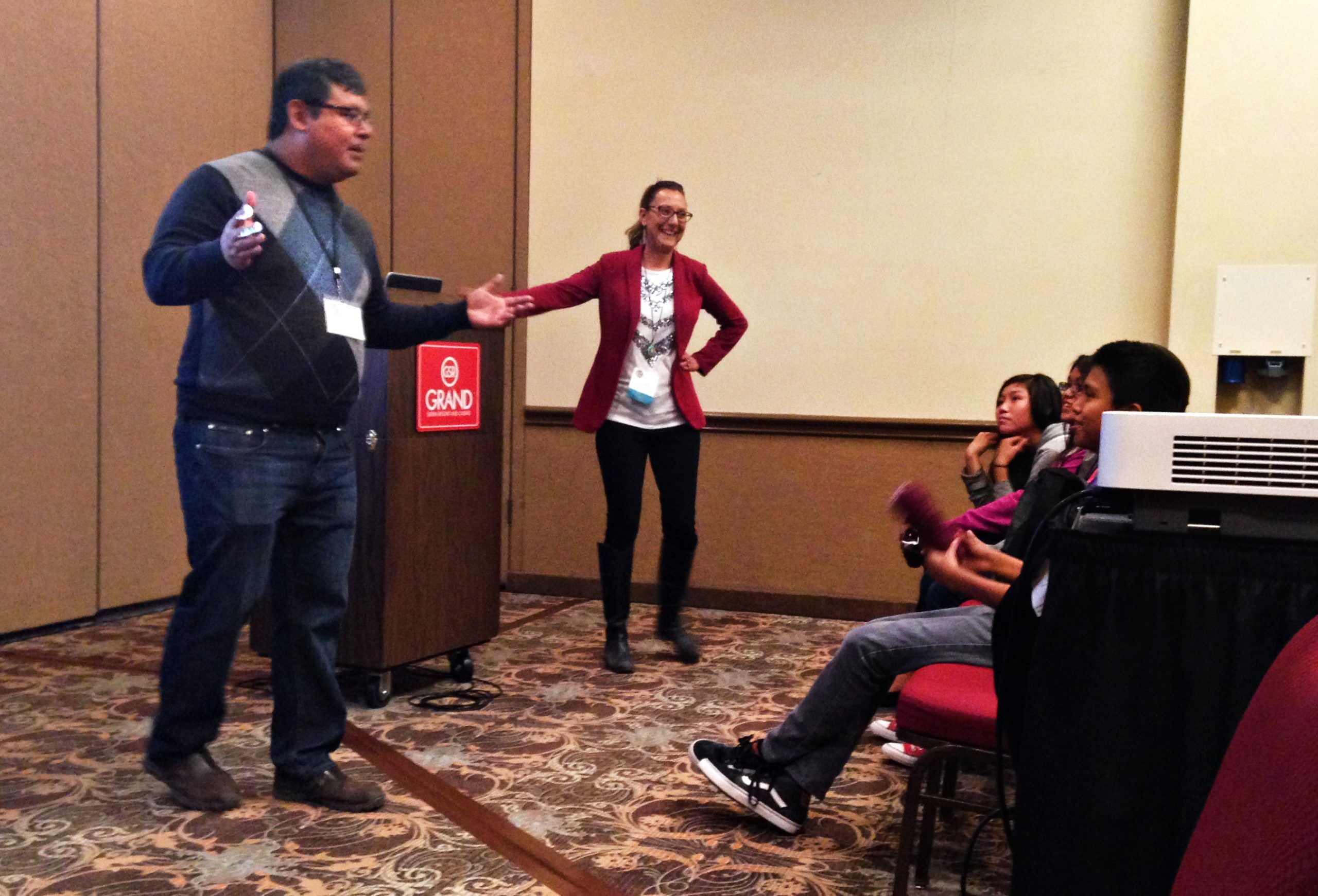American Indians and Alaska Natives (AI/AN) have the lowest higher education enrollment numbers and education attainment levels for people age 25 and older of any ethnic or racial group in the United States. Matthew Van Alstine Makomenaw, Ph.D., the College Pathways Administrator at the American Indian College Fund, will share ways to develop a college pipeline for AIAN students at the College Board National Forum 2016 on October 27 in Chicago, Illinois.
Matthew Makomenaw talks to students about college.
Makomenaw is an enrolled member of the Grand Traverse Bay Band of Ottawa and Chippewa Indians tribes of Michigan. He oversees the College Pathways program at the American Indian College Fund (the College Fund) to increase the number of AIAN students enrolled in college, while supporting the successful transfer of two-year tribal college and university students to four-year higher education institutions. Makomenaw also works to increase admissions testing and college readiness of college students through academic preparedness strategies.
Prior to his current role, he served as the Faculty Fellowships Program Officer at the College Fund, where he was responsible for the recruiting and selection process of faculty fellows. He also was an assistant professor of Native American Studies at Montana State University, the director of the American Indian Resource Center at the University of Utah, and the director of Native American Programs at Central Michigan University. He has served as a member of the Indian Advisory Committee for the Utah Museum of Natural History, with the Region V Indigenous Peoples Knowledge Community of the Student Affairs Administrators in Higher Education (NASPA), as a member of the board of directors for the Urban Indian Center of Salt Lake City, as a member of the State of Utah’s Governor’s Native American Summit Committee, and as the Saginaw Chippewa Tribal College Board of Regents secretary.
Makomenaw holds a doctorate degree in higher, adult, and lifelong education from Michigan State University, where he completed his dissertation on the tribal college students’ success transferring to predominantly white institutions. He also holds a master’s of arts degree in higher, adult, and lifelong education-student affairs and a bachelor’s degree in psychology.

